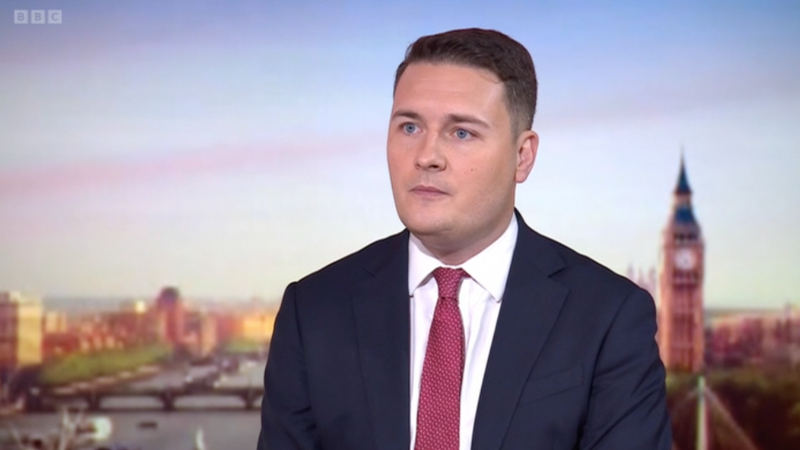
The long-awaited NHS workforce plan has today been published, setting out plans for a significant expansion of healthcare staff across the service. The targets outlined include doubling medical school training places to 15,000, increasing the number of GP training places by 50% to 6,000 and almost doubling the number of adult nurse training places, all by 2031 – with the government committing £2.4bn over the next five years. In comments overnight ahead of the publication of the full report, Wes Streeting declared that the Tories have “finally admitted they have no ideas of their own, so are adopting Labour’s plan to train the doctors and nurses the NHS needs”. The plans do echo much of what Labour has been calling for since conference last year, and on the broadcast round this morning, the Shadow Health Secretary said he was “relieved that we’re in a position where recruitment will get underway”, though he noted that he plans to “pore over the detail with a fine-tooth comb” later today.
Rishi Sunak described the plan as “one of the most significant commitments I will make as Prime Minister”, while NHS chief executive Amanda Pritchard said today was a “truly historic day for the NHS”, arguing that the plan “gives us a once-in-a-generation opportunity to put staffing on sustainable footing for the years to come”. NHS England medical director Stephen Powis struck a note of caution on BBC Radio 4’s Today programme this morning, however, telling listeners that making the plan a reality is “doable” but would be “challenging” for the entire health system. Also commenting, Nuffield Trust senior fellow Dr Billy Palmer declared that, given the “dismal reality” facing many staff in the NHS, “there is a risk that we will feed more and more people into training only to burn them out ever faster”, arguing that the plan “will fail unless it is followed up by efficient, effective ways we can fix the holes in the workforce”.
Meanwhile, the UK’s rating on workers’ rights fell in 2023, according to a report from the International Trade Union Confederation, which highlighted the “repressive” minimum service levels bill brought forward by the government. The ITUC’s global rights index – which observes and analyses the extent to which countries and companies operating within them uphold the rights of workers – saw the UK’s rating fall from a three (“regular violations of rights”) to a four (“systematic violations of rights”). The report concluded that union-busting, attempts to introduce legislation curtailing the right to strike and protest and violations of collective bargaining agreements have become “systematic”, leading to the country slipping down the rankings.
Commenting on the report, TUC general secretary Paul Nowak argued that the government “seems hellbent on undermining [the right to strike]”, adding: “The UK already has some of the most restrictive trade union laws in Europe. This draconian anti-strike bill will drag us further away from mainstream norms and make the UK an international outlier.” The minimum service levels bill is due back in the House of Lords next week.
In Labour Party news, nominations for this year’s internal elections have been finalised. For the party’s ruling national executive committee, the 13 trade union representative positions were elected unopposed, with two each going to the GMB, Unite, UNISON and Usdaw and one each for the Musicians Union, TSSA, CWU, FBU and ASLEF. Two candidates have made it onto the ballot for the NEC’s socialist societies rep: incumbent James Asser, with 14 nominations, and Rathi Guhadasan, who was backed by the Socialist Health Association.
For the conference arrangements committee, four candidates have made it onto the ballot for the two Constituency Labour Party (CLP) rep positions (at least one of whom must be a woman): Labour to Win-backed candidates Alice Perry and Phil Wilson came first and second with 67 and 60 nominations respectively, ahead of Momentum-backed Jean Crocker and Chris Saltmarsh on 42 and 36.
Ten candidates have made the ballot for the national constitutional committee’s (NCC) five CLP rep positions (at least two of whom must be women) – five from each of the factional groups. Labour to Win were ahead in nominations for these positions too, with their candidates receiving between 37 and 60 nominations, while Momentum-backed candidates received between 13 and 38.
For the national women’s committee, 14 candidates have made the ballot for the six positions in the CLP rep section: six from each factional group and two backed by the Labour Women’s Declaration. Nomination totals for Labour to Win and Momentum candidates were closer than for the other committees, though five of the top six candidates were endorsed by the pro-Starmer faction.
Sign up to LabourList’s morning email for everything Labour, every weekday morning.



More from LabourList
Which ministers have done the most and fewest broadcast rounds in year one?
‘Welfare reforms still mean a climate of fear. Changes are too little, too late’
Welfare bill: Which MPs are still voting against reforms?